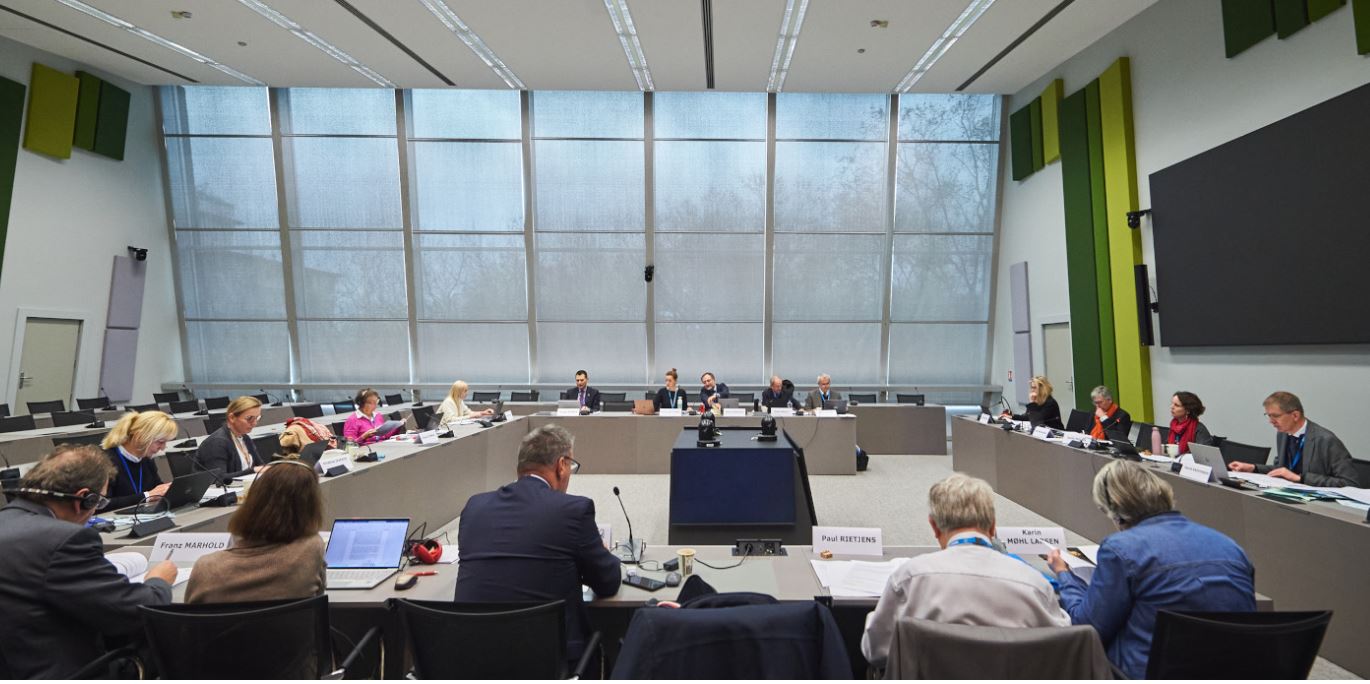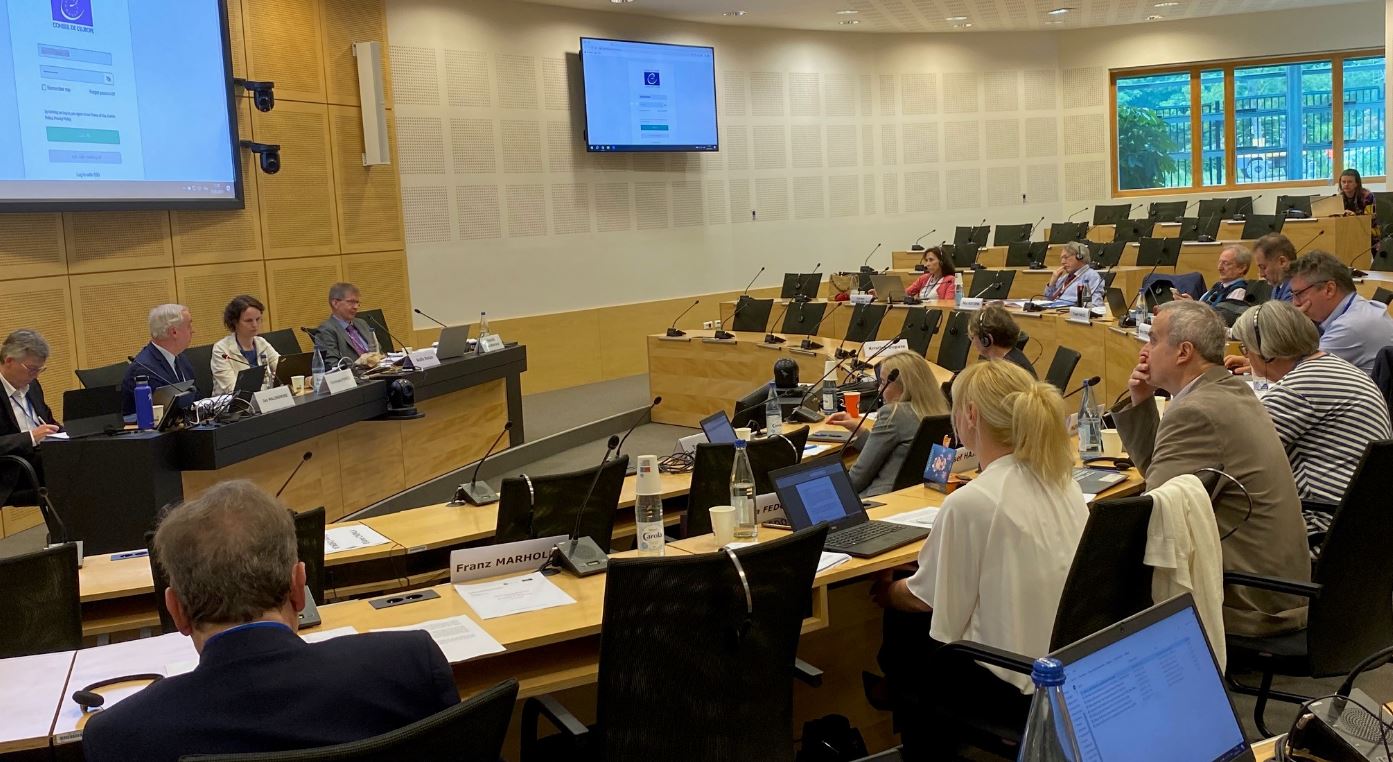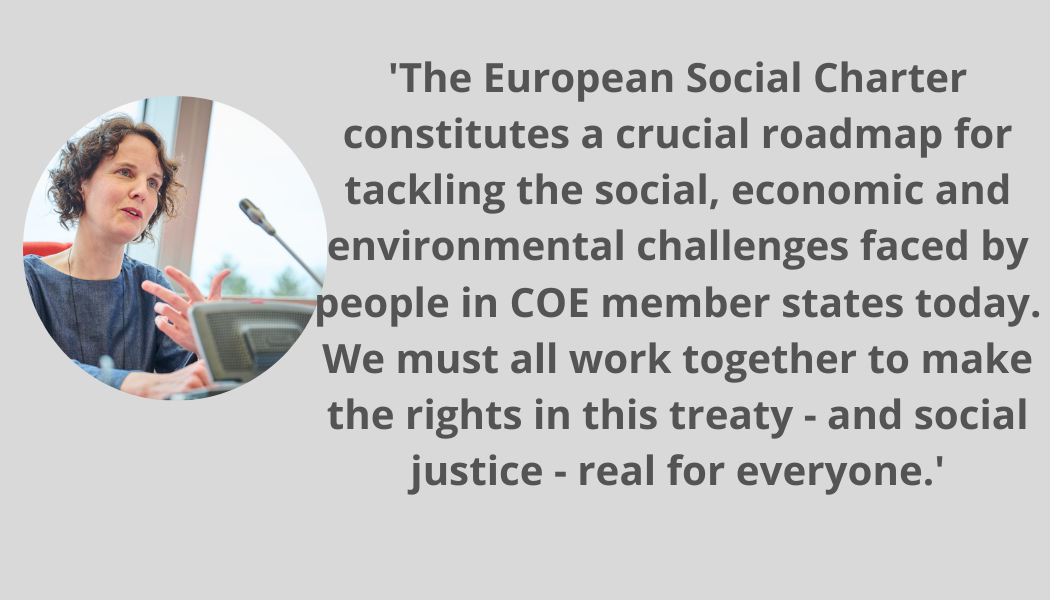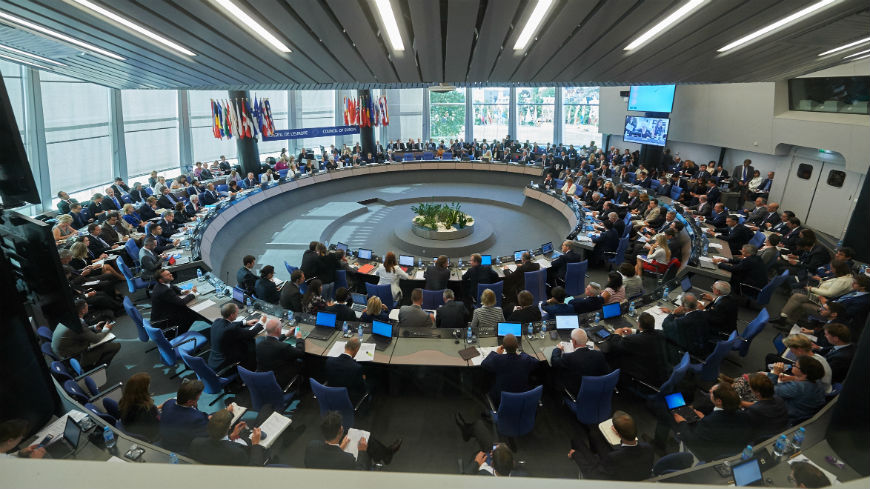In her exchange of views with the Committee of Ministers Delegates, Karin Lukas, President of the European Committee of Social Rights (ECSR), emphasised that during her mandate the Committee has consistently aimed to interpret the Charter in the light of present-day conditions to keep up with the drastic changes impacting social rights and to better protect rights bearers, especially the most vulnerable.
The successive crises which have rippled worldwide, have put extreme strain on the enjoyment of social rights by many on our continent. In this context, Karin Lukas underlined the adoption by the Committee of Ministers of an ambitious reform package of the Charter system in September 2022, after a broad consultation process under the aegis of GT-CHARTE. She recalled that the main objective of the reform was to render the reporting procedure lighter and more targeted, strengthen the role of the Governmental Committee and enhance the dialogue among stakeholders.
She also informed the Ministers’ Deputies that the European Committee of Social Rights has decided to strengthen its follow-up on non-accepted provisions. For this purpose, in addition to reporting on non-accepted provisions, meetings with the authorities and other stakeholders will resume in order to identify or create opportunities for accepting further provisions. In addition, and in line with decisions of the Deputies, this process will also include States Parties bound by the 1961 Charter*, with the aim not only of increasing the number of accepted provisions but also of encouraging them to ratify the Revised Charter.
Karin Lukas also emphasised that the addition of new rights to the Charter should be given proper consideration in order to take full account of the evolving social context and expectations of European citizens.
Finally, Karin Lukas stressed that, for the reform to be truly successful and in order to maintain the quality and relevance of the Charter, it is crucial to provide the European Committee of Social Rights and its Secretariat with adequate resources.
Intervention of Karin Lukas before the Committee of Ministers Delegates
* These states are Croatia, Czech Republic, Denmark, Iceland, Luxembourg, Poland and the United Kingdom.







